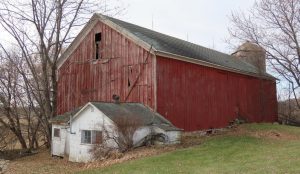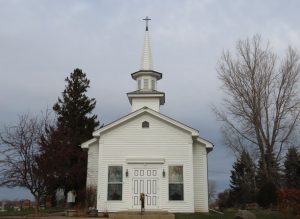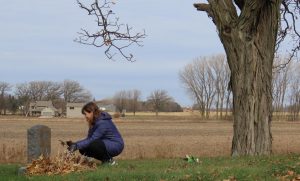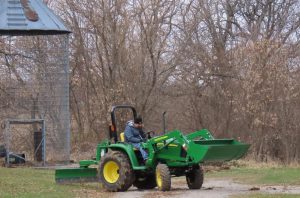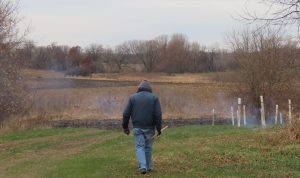Welsh heritage in Ring
Owen Peterson, Opinion Editor
December 16, 2021
-
The town of Ring, Wisconsin, may be hardly visible on a map and have a population in the mere hundreds, but it hosts some of the last remaining traces of the large migration of Welsh settlers to the Winnebago County area in 1847.

-
One of these artifacts exists in the form of an out-of-use farmstead that once went by the name of Pen-Y-Bonc. The name translates to “Rising Ground” in English, appropriate for the farmstead whose main facilities were laid at top of a hill, and is a reference to a farm in the northern tip of Wales that bears the same name.

-
The farm was established around 1865 by Rowland Davies, an immigrant from Denbigh, Wales. In his obituary in the Daily Northwestern in 1909, he was heralded for “turning his inventive genius to good account upon the farm and the result was that he invented a threshing machine of practical use.”

-
The farm operated until the early 1980s, when William Weston Davies, grandson of Rowland, sold the last remaining livestock. Since, the farmstead had been merely residential, with the old barn and silo falling into a state of disrepair.

-
This is the story of many of the original settlements of Ring, as a lot of the industry that Ring thrived on has moved to an industrial scale. Now, many of the properties, whether in their original state or newly renovated, are kept with more sentimental intent.

-
Down the road from the old farmstead is Bethesda Presbyterian Church, one of the two remaining traditional Welsh churches in the area (the other being the Peniel Chapel). Bethesda serves as the primary historical landmark of Ring, representing the religious and communal life of the early settlers as well as serving as the final resting place for many of them.

-
Founded in 1856, Bethesda reflects the quaint, tradition-based ethos of the town it is in. Bethesda still operates regularly to this day, celebrating its Welsh origin through stained glass windows bearing traditional Welsh inscriptions.

-
Though many of the earliest headstones at Bethesda’s cemetery have become illegible with time, most of the Pen-Y-Bonc lineage is there to see, reflecting the family’s efforts to maintain tradition against wear of time. William Weston’s headstone even bears the name of the farm.

-
Though the days where the farmstead hosted its many cows are well in the past, the Davies on Pen-Y-Bonc, now four generations removed from its founder, work to breathe new life into the historic property by erecting new buildings and converting some of the unused land into tree farms.

-
Families like the Davies help to preserve and uphold the legacy of the Welsh settlers of 174 years ago, showing that for every building or business that falls, new seeds can be planted to maintain the rich traditions found in the most unexpected of places.




